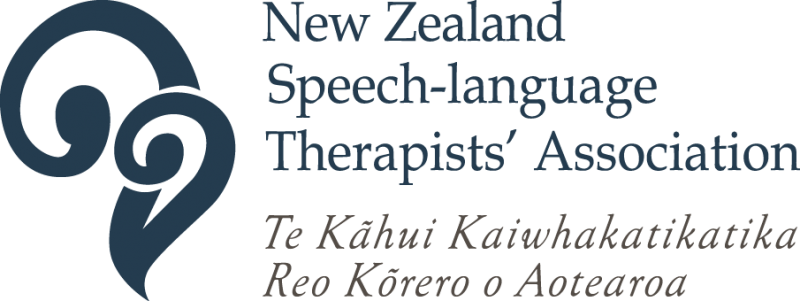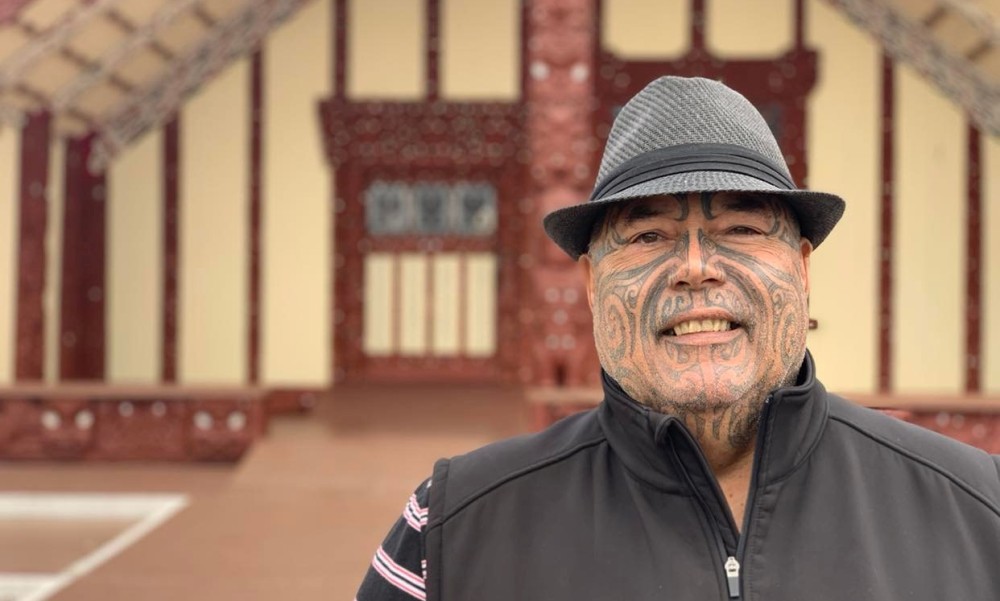Our Structure
The Board governs NZSTA and comprises members elected by the membership. The Board determines the association’s strategic direction, policies, and priorities.
The NZSTA Rules underpin the governance of the NZSTA.
The NZSTA board comprises seven elected members.
The Board is supported by a kaumātua, an executive director and a secretariat.
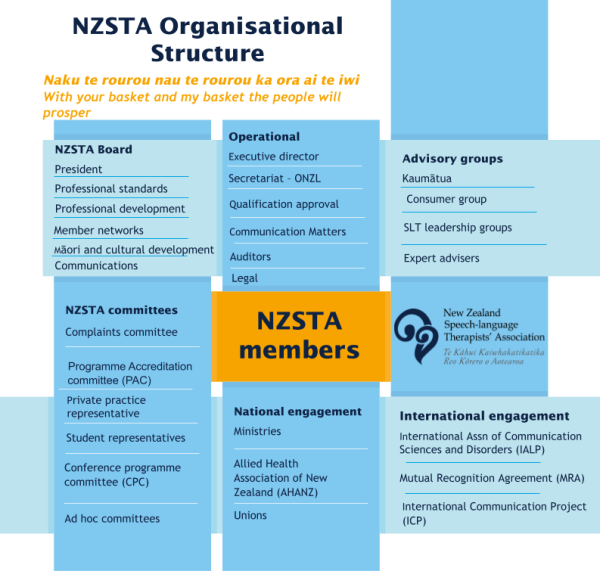
The NZSTA Board
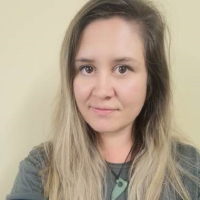
Katrina McGarr
Co-president, (MSc, BSLP(hons), BA Psychology)
Ko Motu Pōhue te maunga, ko Te Ara a Kiwa te moana, ko Takitimu te waka, ko Te Rau Aroha te marae, ko Awarua tōku hapū, ko Ngāi Tahu tōku iwi, ko Katrina tōku ingoa.
Katrina is a clinical educator, speech-language therapist at the University of Canterbury. She holds the position of treasurer with the Dementia Canterbury Board.
Her clinical interests include supporting people living with dementia and their whānau to maintain a connection through meaningful communication and working alongside adults with acquired communication changes. Katrina is also interested in clinical education, particularly in giving awhi to students to enhance their awareness of person-centred and holistic care through aligning their values with professional identity as a ‘speech-language therapist’.
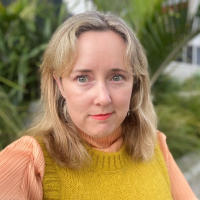
Emma Quigan
Co-president, (MEd(hons), BSLT)
Ko Takitimu te mauka, ko Aparima te awa, ko Takitimu te waka, ko Takatai o te tītī te mare, ko Ōraka Aparima tōku hapū, ko Ngāi Tahu tōku iwi, ko Emma tōku ingoa
Emma is the work-integrated learning coordinator - speech and language therapy at Massey University, coordinating all student clinical placements.
Her clinical interests include communication support for children and their whānau and teachers in the early years through to school, holistic approaches to therapy, coaching, and decolonising and re-indigenizing our practice.
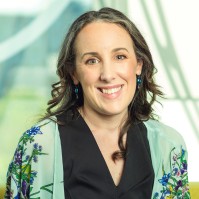
Amy Scott
Communications portfolio, BA (Psychology); BSLT (Hons.); PhD (Education)
Dr. Amy Scott is a Senior Lecturer and programme coordinator for the Better Start Literacy Approach microcredentials in the Child Well-being Research Institute at the University of Canterbury. With a background as a speech-language therapist, she is now a researcher on a range of projects focused on children’s early literacy success. Her research interests include the development of tools and resources for teachers and whānau, to support the facilitation of early literacy and language success.
She has a long history with the NZSTA, serving as a student representative for two years during her undergraduate degree and attending and presenting at NZSTA events in her professional role. She is passionate about the role SLTs play in supporting children’s literacy and language success, particularly how they can work alongside teachers in the education system to advance this. She is also passionate about the revitalisation of te reo Māori and her role as a Pākehā ally in this kaupapa. She has been learning te reo Māori for 5 years now and is committed to continuing her learning in this space.
Amy is an effective communicator, and is confident presenting to and speaking with large groups of people both in person and online. She is exceptionally well organised, juggling a very busy, fulltime academic role, two young children and te reo Māori study in her own time. She has great attention to detail and a solid understanding of how to turn ideas into action. Amy is interested in reengaging with the NZSTA through the Board role of Communications portfolio holder. She would value the opportunity to have more of a strategic role in engaging more widely with community and particularly our education-based SLTs.
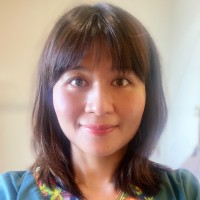
Su Hui Lim
Professional Standards portfolio (MSc (Speech Science), BSLT)
Su gained her Bachelor Honours Degree in Speech Sciences from The National University of Malaysia in 2011. Having worked at the Melaka General Hospital (MGH) as a new graduate, often, she strived to achieve a higher standard of clinical practice by setting up different protocols and clinical procedures for our day-to-day business. In addition, she grabbed every opportunity she could to learn about the latest research and best practise. After a few years of practice, she decided to resign from her job at MGH and came to New Zealand to learn from Professor Maggie-Lee Huckabee, the pioneer in the field of dysphagia. She completed an MSc in Speech & Language Sciences at the University of Canterbury in the year 2018. Upon completion of the MSc studies, she was offered a job as a speech-language therapist at Taranaki Base Hospital and now, she is still enjoying what she is doing.
Having previous experience working with paediatric and adult patients in various settings, Su picked up portfolios such as VFSS clinic, adult community and outpatient services in the South Taranaki, pediatric inpatient and community services. While waiting for the VFSS instrument to be replaced, Taranaki SLT department has been running their regular VFSS clinic in Whanganui Hospital. This means lots of communication and best practice standards were required when the clinic was first set up. To ensure best practice and safe practice, Su researched into the latest VFSS standard/ protocols before they started to implement the protocol in the clinic. She believes professional standards are key to achieving best practice, maximizing patient care and minimizing risk or harm to both clinicians and patients.
Growing up in a multicultural country, she values people while respecting cultural diversity. Su is aware and believes she can uphold the principles of the Treaty of Waitangi in this role. Her outstanding communication skills allow her to build a rapport with patients and work effectively with a multidisciplinary team in treatment planning. The research experience she gained through Hons and MSc equips her to critically appraise research before translating it into clinical practice. Su is familiar with decision making, especially during difficult situations. She is fluent in writing and speaking English, Mandarin, Malay, Cantonese and Hokkien. Meanwhile, her strong sense of self-awareness enables Su to reflect on her professional behaviours and hence engage in continuous professional development while empowering people around her to achieve her goals as a team.
Alice, Jo and Libby

Alice Buckland
Māori and cultural portfolio, (BSpchLangTher(Hons)
Ko Hikurangi te maunga, ko Waiapu te awa, ko Horouta te waka, ko Umuariki te marae, ko Ngai Taharoa tōku hapū, ko Ngāti Porou tōku iwi. Ko Alice Buckland ahau, ko irawhiti whakawahine takatāpui au. Ehara taku toa i te toa takitahi, engari kē he toa takitini.
Alice is a Kaihapai Reo Kōrero/Speech-Language Therapist at Ko Taku Reo Deaf Education. She works with ākonga, whānau, kaiako, and other pūkenga towards holistic communication goals and enabling equitable communication environments for young Deaf people. She is passionate about the decolonization of the Speech Language Therapy practice and supporting Māori clinicians and learners alike to succeed and thrive as Māori.
Jo Mitchell
Member networks portfolio
Jo Mitchell is a Speech and Language Therapist with over 10 years of clinical experience. Jo specializes in rural generalist care and is the Professional Lead for Whanganui Te Whatu Ora. She is currently undergoing a secondment as the acting clinical manager for Speech and Language Therapy and Dietitians. Jo has a passion for providing excellent patient care and dedicated to continuous professional development. She is a team player and encourages others to work hard and succeed. In her free time, Jo likes to hike, sew, and receives Pool 8 Ball coaching from her husband. Jo is keen utilise her skills to support the NZSTA and it's members. If elected, she aims to utilise and develop her skills to find new and innovative ways to support members and improve communication across the motu.

Libby Coates (MSLTP)
Professional development portfolio (MSLTP)
Libby has been co-opted to this role for one year.
Libby is a 3rd generation Pākehā New Zealander. She hails from the Deep South, having grown up as a well-adjusted middle child on a farm just north of Invercargill, but now calls Te-Whanganui-a-Tara home, where she lives with her three tamariki and an ever patient husband.
She joined the SLT programme at Waipapa Taumata Rau / the University of Auckland thinking she would work with children, but fell in love with dysphagia and has worked with adults in the Health sector since graduating. Currently she works alongside the SLT team as Professional Lead for SLT at Te Whatu Ora - Capital, Coast and Hutt Valley.
Libby brings a passion for coaching and continuing professional education, along with her experience sitting as the Health rep on the Programme Accreditation Committee. She is committed to continuing the conversation about how we as a profession move towards a bicultural reality and uphold our obligations under Te Tiriti o Waitangi, and has a particular interest in considering what learning, and unlearning, needs to happen to support us on that journey.
NZSTA Office
An executive director/kaiwhakahaere matua and a secretariat service the NZSTA board and its members.
The executive director is responsible and accountable to the New Zealand Speech-language Therapists’ Association (NZSTA) Board for the implementation of the strategy and management of the organisation, the implementation of organisational policies and priorities and the fulfilment of contracted outcomes to realise the Association’s vision, mission and strategic goals.
A secretariat team provides administration and finance services to the Board.
Together this is the gateway for members to access services and resources. They provide support and assistance to the NZSTA members and the Board.
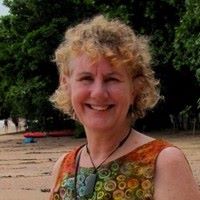
Siobhan Molloy
Executive Director / Kawhakahaere Matua
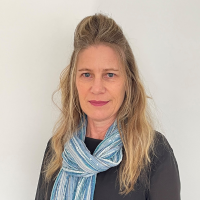
Loreen Lee
Administrator for Secretariat
Areas and Special Interest Groups
Members, including students, can join special interest groups and participate in the quarterly activities of local area networks.
Annual General Meeting
The NZSTA’s annual general meeting is held in March/April.
While all members are welcome to attend and speak, only Full Members and Life Members may also vote on items of business conducted at the AGM.
